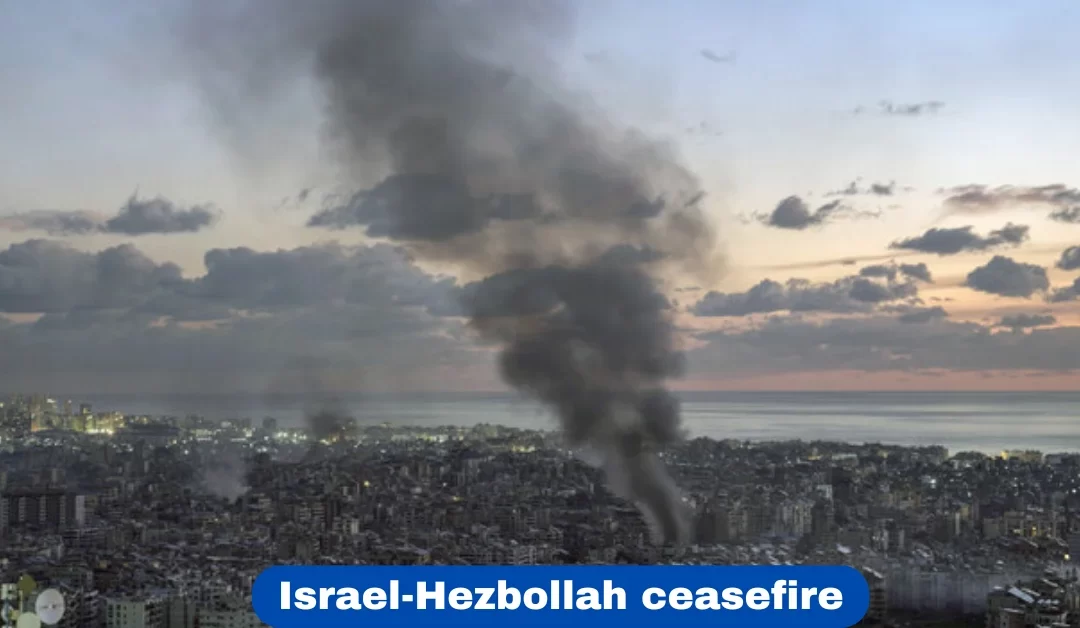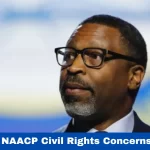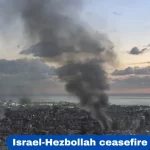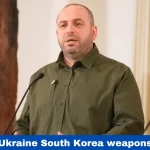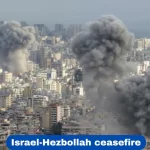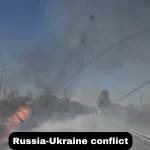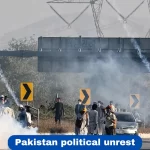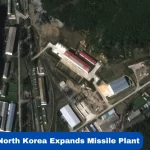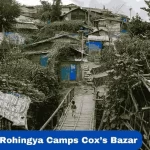Israel and the Lebanese group Hezbollah are set to begin a ceasefire under a US-brokered deal. The truce, lasting 60 days, aims to end over a year of conflict between the two sides. This agreement is seen as a step toward long-term peace in the region.
Ceasefire Begins on Wednesday
The truce will officially start at 4 a.m. local time (0200 GMT) on Wednesday. Both Israel and Hezbollah are expected to stop all military actions by this time.
- What Israel Will Do:
- Halt military operations in Lebanon, including strikes on civilian and military targets.
- Stop air, sea, and land offensives.
- What Hezbollah Will Do:
- Cease all attacks on Israel.
- Ensure that no allied groups carry out operations against Israel.
US President Joe Biden announced the truce, emphasizing its aim to permanently end hostilities. Lebanese Prime Minister Najib Mikati and Hezbollah’s leadership have expressed support for the deal.
Withdrawal of Israeli Troops
Under the agreement, Israeli troops will gradually pull out of southern Lebanon within 60 days.
- Timeline:
- Lebanon initially pushed for an immediate withdrawal.
- Israeli forces are now expected to leave within the first month of the truce.
- Conditions:
- Both sides retain the right to self-defense.
- Civilians displaced by the conflict, including over 1.2 million Lebanese, will be able to return home.
Hezbollah’s Movement and Lebanese Army Deployment
Hezbollah fighters will withdraw from southern Lebanon to positions north of the Litani River, which lies 30 kilometers from the Israeli border.
- Key Actions:
- Hezbollah’s military facilities in the south will be dismantled.
- Fighters may take their weapons as they retreat.
- Lebanese Army Role:
- Around 5,000 Lebanese soldiers will be deployed south of the Litani.
- They will establish 33 posts along the border with Israel.
- Challenges:
- Returning displaced residents face risks from unexploded ordnance.
- Hezbollah has prioritized ensuring displaced people can safely return.
Monitoring the Ceasefire
A robust monitoring mechanism has been set up to ensure both sides adhere to the agreement.
- Who Monitors:
- The United Nations peacekeeping force (UNIFIL).
- Lebanese and Israeli armies.
- US and French representatives, with the US chairing the group.
- Reporting Breaches:
- Israel can report violations to the monitoring body.
- France and the US will jointly determine if a breach has occurred.
US President Joe Biden and French President Emmanuel Macron issued a joint statement affirming their commitment to fully implement the deal.
Controversy Over Israeli Strikes
Israeli officials have stated that their military retains the right to strike Hezbollah if it detects security threats.
- Potential Israeli Actions:
- Targeting weapon transfers or military equipment movements by Hezbollah.
- Using drones to monitor activities in southern Lebanon.
- Lebanese Response:
- Lebanese officials argue that these strikes would violate the agreement.
- They oppose any actions undermining Lebanon’s sovereignty.
US mediator Amos Hochstein assured Israeli Prime Minister Benjamin Netanyahu that Israel’s security concerns would be addressed. However, Lebanon’s leadership insists that such provisions are not part of the agreement.
Significance of the Truce
This ceasefire is a critical step in easing tensions between Israel and Hezbollah.
- Benefits:
- Reduced violence in the region.
- Safe return of displaced civilians on both sides.
- A framework for long-term peace negotiations.
- Challenges Ahead:
- Ensuring both sides fully comply with the agreement.
- Managing potential disputes over violations.
- Addressing long-standing issues that fuel the conflict.
The US-brokered ceasefire between Israel and Hezbollah offers hope for peace in the Middle East. By halting hostilities and focusing on rebuilding trust, this agreement could pave the way for a more stable future. However, its success depends on both sides adhering to the terms and addressing underlying tensions. With global powers like the US and France actively monitoring the situation, there is cautious optimism that this truce will hold.

